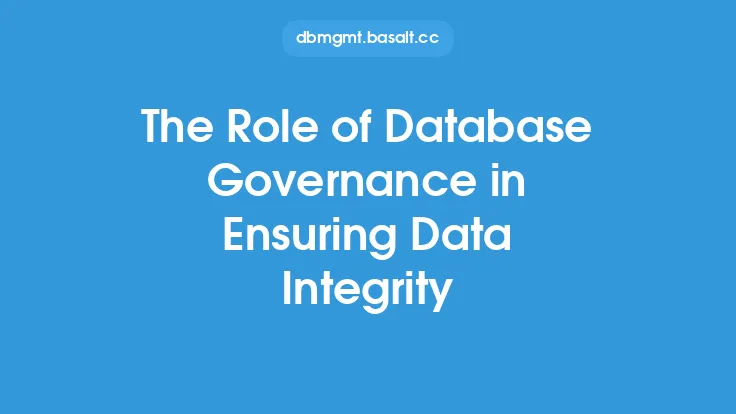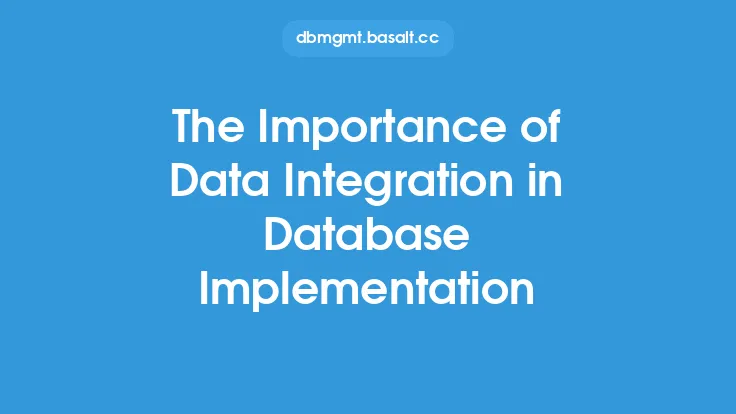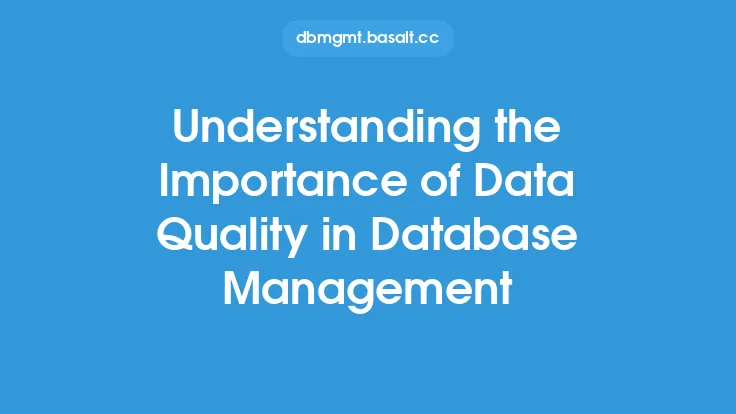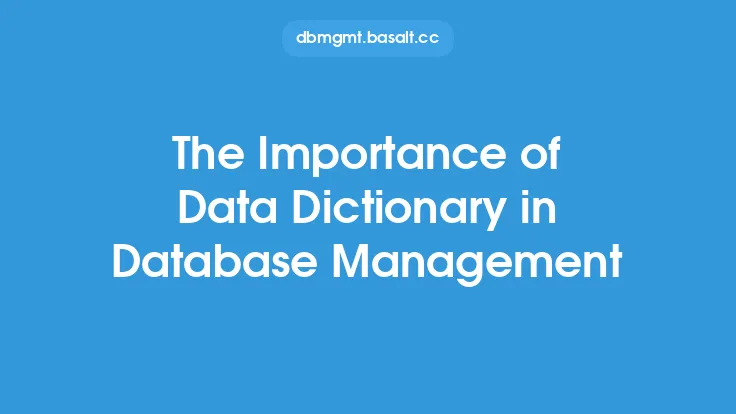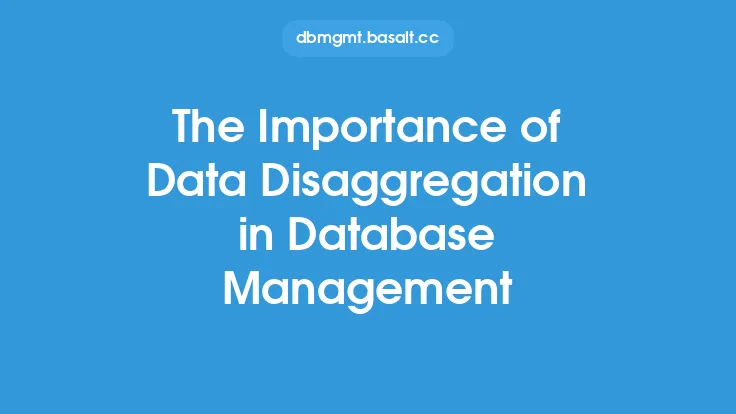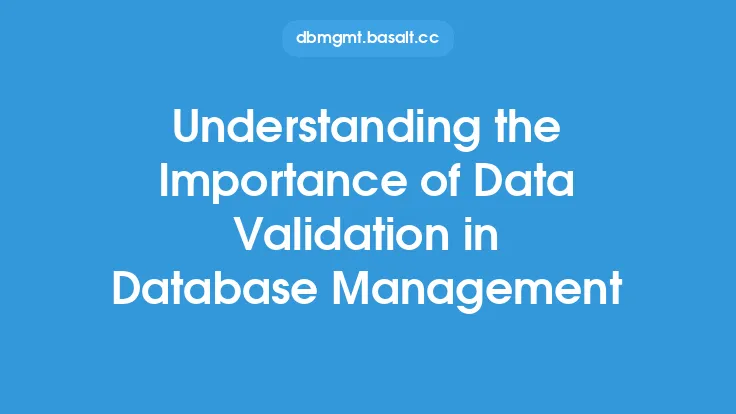Data governance is a critical aspect of database administration that involves the management of data assets across an organization. It encompasses a set of policies, procedures, and standards that ensure the accuracy, completeness, and consistency of data, as well as its security, privacy, and integrity. Effective data governance is essential for organizations to make informed decisions, improve operational efficiency, and reduce risks associated with data management.
Introduction to Data Governance
Data governance is a holistic approach that involves multiple stakeholders, including data owners, data stewards, and data users. It requires a deep understanding of the organization's data assets, including their structure, content, and usage. A well-defined data governance framework provides a clear understanding of the roles and responsibilities of each stakeholder, ensuring that data is managed consistently and in accordance with organizational policies and standards.
Key Components of Data Governance
Data governance consists of several key components, including data quality, data security, data privacy, and data integrity. Data quality refers to the accuracy, completeness, and consistency of data, while data security refers to the protection of data from unauthorized access, use, or disclosure. Data privacy refers to the protection of sensitive data, such as personal identifiable information (PII), from unauthorized access or disclosure. Data integrity refers to the consistency and accuracy of data across different systems and applications.
Data Governance and Database Administration
Data governance is closely tied to database administration, as databases are the primary repositories of an organization's data assets. Database administrators (DBAs) play a critical role in ensuring the integrity, security, and performance of databases, which is essential for effective data governance. DBAs must work closely with data owners and stewards to ensure that data is properly managed, including data modeling, data normalization, and data validation.
Data Governance Frameworks
A data governance framework provides a structured approach to managing data assets across an organization. It consists of a set of policies, procedures, and standards that ensure the consistency and accuracy of data. A typical data governance framework includes the following components:
- Data governance policies: These define the rules and guidelines for managing data assets, including data quality, security, and privacy.
- Data governance procedures: These outline the steps and processes for managing data assets, including data creation, update, and deletion.
- Data governance standards: These define the technical and operational standards for managing data assets, including data formats, data structures, and data interfaces.
Data Governance Tools and Technologies
Several tools and technologies are available to support data governance, including data quality tools, data security tools, and data governance platforms. Data quality tools, such as data profiling and data validation tools, help ensure the accuracy and completeness of data. Data security tools, such as encryption and access control tools, help protect data from unauthorized access or disclosure. Data governance platforms, such as data catalogs and data governance software, provide a centralized repository for managing data assets and enforcing data governance policies.
Benefits of Data Governance
Effective data governance provides several benefits, including improved data quality, increased operational efficiency, and reduced risks associated with data management. It enables organizations to make informed decisions, improve customer satisfaction, and reduce costs associated with data management. Additionally, data governance helps organizations comply with regulatory requirements, such as data privacy and security regulations, and reduces the risk of data breaches and cyber attacks.
Challenges of Implementing Data Governance
Implementing data governance can be challenging, especially in large and complex organizations. It requires significant resources, including time, money, and personnel. Additionally, data governance requires a cultural shift, as it involves changing the way people think about and manage data. Organizations must also address technical challenges, such as integrating multiple systems and applications, and ensuring data consistency and accuracy.
Best Practices for Data Governance
Several best practices can help organizations implement effective data governance, including:
- Establishing clear roles and responsibilities for data governance
- Developing a comprehensive data governance framework
- Implementing data quality and data security tools and technologies
- Providing training and awareness programs for data users and stakeholders
- Continuously monitoring and evaluating data governance policies and procedures
- Ensuring compliance with regulatory requirements and industry standards
Conclusion
Data governance is a critical aspect of database administration that involves the management of data assets across an organization. It requires a deep understanding of the organization's data assets, as well as the implementation of policies, procedures, and standards to ensure the accuracy, completeness, and consistency of data. Effective data governance provides several benefits, including improved data quality, increased operational efficiency, and reduced risks associated with data management. By following best practices and using the right tools and technologies, organizations can implement effective data governance and achieve their business objectives.
